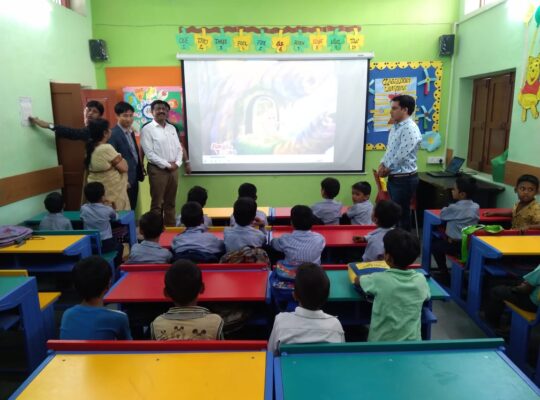The future of digital health, as a matter of fact, pertains to a myriad of technologies put together. Whether it is Artificial Intelligence (AI), advanced health sensors, genomics or robotic surgeries, or all of them put together, digital healthcare is very much technology-based only on paper.
If there’s one positive outcome of the Covid-19 outbreak, induced lockdowns and subsequent waves, it is in the form of increased adoption of technology across different segments and industries. The healthcare industry for one, which braved the biggest blow of the novel virus, has in the recent past been witnessing massive improvement and innovation ushered by digital and technological transformation. With the help of readily accessible and advanced tech-based solutions, hospitals can today get the prerequisite agility to optimize operational processes and enhance patient experience while reducing cost. It is a no brainer to add at this point that the data collected and analyzed via different subsets of technology give a precise idea about the behaviour and needs of all stakeholders, i.e. patients, doctors, staff and management. When looked at in totality, the road ahead for hospitals in the wake of tech transformations is to revamp into smart hospitals.
When we talk about smart hospitals, we essentially refer to a form of digital healthcare incorporating software and hardware services, intertwined with skilled resources and integral operational elements. The future of digital health, as a matter of fact, pertains to a myriad of technologies put together. Whether it is Artificial Intelligence (AI), advanced health sensors, genomics or robotic surgeries, or all of them put together, digital healthcare is very much technology-based only on paper. Technologies like AI, blockchain, and IoT can change the way hospitals, especially the standalone and community ones, operate while increasing their efficiency levels at par with bigger players. These solutions are integrated, patients can check for availability of doctors, hospital staff can keep updated records of their patients, and even if a patient is out of town can consult the doctor as per their convenience. Also, if two hospitals are on the same platform, a patient can go to another hospital in another city and his medical records can be pulled out for better diagnosis and treatment while their medical history can be updated in a database to verify by their main doctor.
Technology further has the potential to transform unsustainable healthcare systems into sustainable ones by ensuring efficiency of operation and unhindered growth while equalizing the relationship between patients and medical professionals. Operate & Manage model, a brainchild of us, has been developed keeping into consideration this very pertinent need of hospitals and healthcare system as a whole, especially in the wake of existing health infra in the country. A substantial manifestation of what impact technology can have on healthcare, this model is designed to take over complete operation and management of hospitals and with a combination of hardware, software, experience, human resources, equipment and marketing tools, transform the same into a smart hospital with maximized efficiency.
While the aforementioned factors are indispensable to tech transformation of healthcare, the tools need to come in handy form and cater to different segments and streams that need coherence and streamlining to offer expected outcome in desired time frame. For instance, every hospital required a one-stop Smart HealthApp for booking of medicines, doctor consultation, lab tests, booking of ambulances, storage of digital health records etc. Equally imperative are Smart Pharmacy – where the supply chain of medicines and consumables is automated without any pilferage – and Smart Labs and Diagnostics – where a centralized system connects diagnostic machines to EMR and EHR to publish reports and orders both on doctors’ as well as patients’ mobile phones.
















